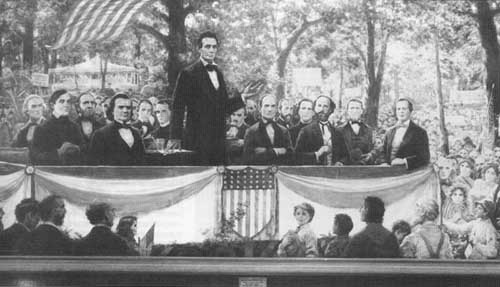“The best laid schemes o' mice an' men / Gang aft agley” (“The best-laid plans of mice and men / Go oft awry”) - Robert Burns, 1785.
The above quote is where the title of the book, “Of Mice and Men” was derived. This tells so much about the theme and moral of the story. “The best-laid plans of mice and men / Go oft awry.” This concept is etched in your mind after reading this book. Every one of Lennie’s intentions were good, they just went terribly wrong. Sometimes plans go wrong and good intentions turn into awful results. An underlying theme to the story could also be interpreted as the idea that sometimes, what may seem as the worst and cruelest thing you can do, could be the best option when it comes to those you care about. John Steinbeck develops the overall theme of “Of Mice and Men” through foreshadowing, repetition, and symbolism.
Throughout the book, there were similar events, which all had recurring themes. There were certain parts that allowed you catch a glimpse of what was to come. For example, in the very beginning when Lennie had killed a mouse on accident. It let readers know that Lennie has the potential to be harmful, even if it is on complete accident. It also showed that this accidental aggression could very well happen again, which it did. Later on in the book, Lennie was regretful that he had killed a puppy by playing too rough. And ultimately, Lennie killed Curley’s wife as a result of desperately trying to listen to what George had told him, but ended up panicking in the uncomfortable situation. The foreshadowing is also apparent when Carlson was convincing Candy to let him shoot his dog, “At last Carlson said, ‘If you want me to, I’ll put the old devil out of his misery right now and get it over with. Ain’t nothing left for him. Can’t eat, can’t see, can’t even walk without hurtin’.’” (Page 47). He finally convinced Candy and shot the dog in the back of the head, just like George shot Lennie. After his dog was shot, Candy told George, “I oughtta of shot that dog myself, George. I shouldn’t oughtta let no stranger shoot my dog.” (Page 61). George loved Lennie and had taken care of him for years and George saw this as the last way of taking care of him. He knew Lennie would be tortured, scared, and his death would be far worse if the men got a hold of him. George decided that he wanted to do it himself, just like Candy had wished he had done for his dog.
“Of Mice and Men” repeatedly uses symbols in order to build up their meaning and significance. After Lennie killed Curley’s wife, he ran away by himself. While he was by himself, he saw and spoke to things in his mind, like his Aunt Clara and a rabbit. The rabbit could be a symbol of many things, but I think it is a symbol of Lennie’s insecurities. The rabbit was telling Lennie that George hated taking care of him and was going to leave him. This is exactly what Lennie would hope was not true. He never wanted or intended to be a burden on George and the rabbit telling him this made him feel insecure and he had to ask George after to reassure himself. Once he was reassured that George wasn’t mad or tired of him, he felt safe. One of the biggest recurring symbols was the house and the farm that George and Lennie had always talked about. It was a symbol of their American Dream; what they longed to achieve together. George seemed to use it as a mechanism of pushing Lennie forward. He would remind him of it and just the idea of a farm was enough to keep Lennie focused on doing well. It was relevant up to the very last pages, leading to Lennie’s death—“’Look acrost the river, Lennie, an’ I’ll tell you so you can almost see it.’” George described the dream for Lennie once again and told him they would do it soon. “Lennie begged, ‘Le’s do it now. Le’s get that place now.’ ‘Sure, right now. I gotta. We gotta.’ And George raised the gun and steadied it, and he brought the muzzle of it close to the back of Lennie’s head. The hand shook violently, but his face set and his hand steadied. He pulled the trigger.” (Pages 105-106).
There are many elements of repetition throughout “Of Mice and Men”. The idea of working towards a goal was repeated often. As mentioned previously, the idea of a farm and house was a large recurring theme in the book and it echoed the idea of achieving a goal. Also, Lennie’s love and bad luck with animals was repeated throughout the book. In the beginning, he killed a mouse accidentally. Later on, a puppy died after he played with it and was too rough. And at the very end, he killed Curley’s wife. To me, this repetition was a way of conveying the idea that Lennie was unsure about how to interact with others, whether they be animals or people. He loved and cared for both, but sometimes his mindset was that of a child and the situations he was put in were years beyond him. George understood him and he forgave him no matter what, but not everyone was that way. Lennie always meant well, but he ended up in situations that were unfit for him and he didn’t know how to operate his way out of them.
“Of Mice and Men” is a simple book with a thoughtful meaning behind it. The story shows that at times, good plans can go terribly wrong. Also, what may seem like an awful thing to do to someone you love, could be the best thing, as it was in Lennie and George’s case. This book started off slow for me. I didn’t understand it and wasn’t enjoying it very much. However, the last few chapters tied everything together for me. It made the book interesting and sad, and it made everything else fall into place. I realized that Steinbeck’s writing style for this book was to build ideas up subtly, with the use of literary devices like foreshadowing, and leave the peak of the story until the very last few pages.
 We just completed our Water Quality Project and I'm really proud at what I was able to create and accomplish. I decided to make a petition e-mail/letter to bring awareness and change to pollution in Imperial Beach. I'm proud of this because it was an issue that I actually do care about. I'm also proud because I spent a lot of time and put a lot of effort into making this what it was. Not just at the very beginning or the very end of the project, but throughout the whole process. I didn't procrastinate and I aimed for high-quality work.
We just completed our Water Quality Project and I'm really proud at what I was able to create and accomplish. I decided to make a petition e-mail/letter to bring awareness and change to pollution in Imperial Beach. I'm proud of this because it was an issue that I actually do care about. I'm also proud because I spent a lot of time and put a lot of effort into making this what it was. Not just at the very beginning or the very end of the project, but throughout the whole process. I didn't procrastinate and I aimed for high-quality work. I wrote two letters--one to the reader and one to Imperial Beach City Council members. I worked really hard on the letters because they were the main compenent of my project. It was important to me that the writing was my best and that the message was clear. I did this by writing many, many drafts and getting each one critiqued and revised. I wrote about 18 drafts of letters and with each draft, came higher quality writing. It was also important that I was able to stay organized througout this project and keep all of my work in one place. I did this by keeping every paper and every
I wrote two letters--one to the reader and one to Imperial Beach City Council members. I worked really hard on the letters because they were the main compenent of my project. It was important to me that the writing was my best and that the message was clear. I did this by writing many, many drafts and getting each one critiqued and revised. I wrote about 18 drafts of letters and with each draft, came higher quality writing. It was also important that I was able to stay organized througout this project and keep all of my work in one place. I did this by keeping every paper and every draft organized in a folder dedicated to this project. I also made a banner for the top of the page, which was a huge challenge for me because I don't know anything about Photoshop. I did multiple drafts on this, as well. I did my best and I'm proud of what I was able to do.
draft organized in a folder dedicated to this project. I also made a banner for the top of the page, which was a huge challenge for me because I don't know anything about Photoshop. I did multiple drafts on this, as well. I did my best and I'm proud of what I was able to do.




















